This blog post is part of “The Ultimate Guide to SEO” blog series.
Many of our clients have done little in the way of SEO optimization when they come to us. We work mainly with B2B companies that are not selling online, and they don’t think about SEO like an e-commerce company that is living and dying by traffic and conversions. They may have hired a consultant when they built their websites, but then left their site untouched since. This can leave a bad taste in their mouths for their SEO consultants, as they haven’t seen value from the investment. But there has been little analysis and optimization since the initial project.
Sophisticated SEO Audits
We have a developed a pretty sophisticated SEO audit process and toolkit to help clients understand how their websites are performing, where performance is lacking and how to make improvements. The tools available are great because they take site analysis out of the realm of speculation. The numbers don’t lie–ranking factors like loading speeds, page and domain authority, mobile-friendliness, and backlinks are fairly easy to measure, and the action items that the tools recommend are specific and detailed.
Here’s an overview of the tools we use to help businesses understand how their websites are performing.
Measuring and Benchmarking Tools
Performance optimization starts with benchmarking. We use GTmetrix, Pingdom, WPengine and Google Page Speed Test for starters. These tools give you real time performance scores that allow you to benchmark current site performance as well as identify some of the specific areas that need improvement. At different stages of the process, we rechecked our site to check the gains. Examples of the output of these tests are below.
Pingdom
Pingdom is a website performance optimization company that also offers a free analysis of the state of a website. First, you get a performance grade as seen below, ranking average load time page size with a comparison of the site’s result with other websites. Note: the name of the company has been concealed to protect the innocent.

Pingdom also offers “Page Insights” that assign a letter grade to multiple performance factors.
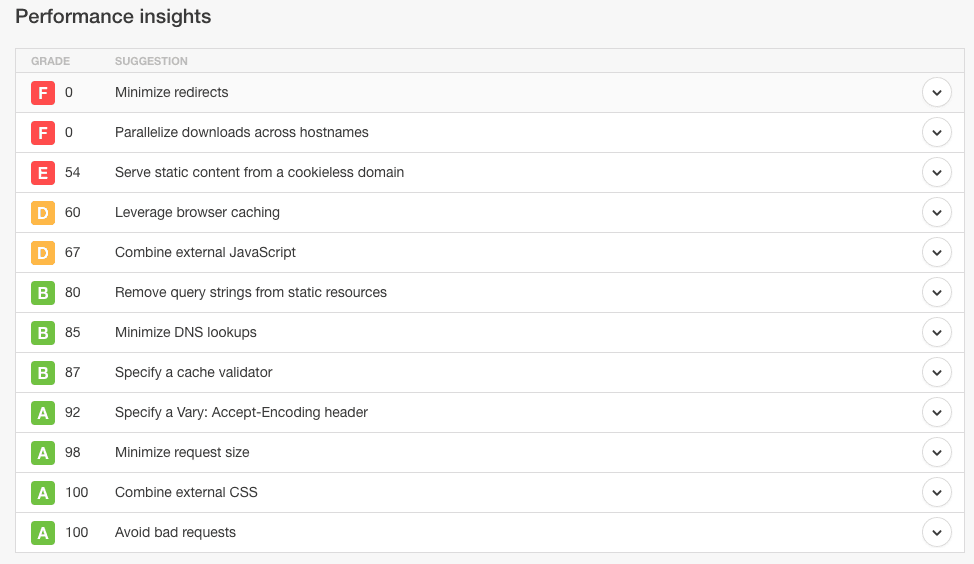
You can click on one of the performance factors for specific recommendations.

The Pingdom results page also measures content size by type of content and by the domains present on your site. It also lists the loading time and order of every file the site.
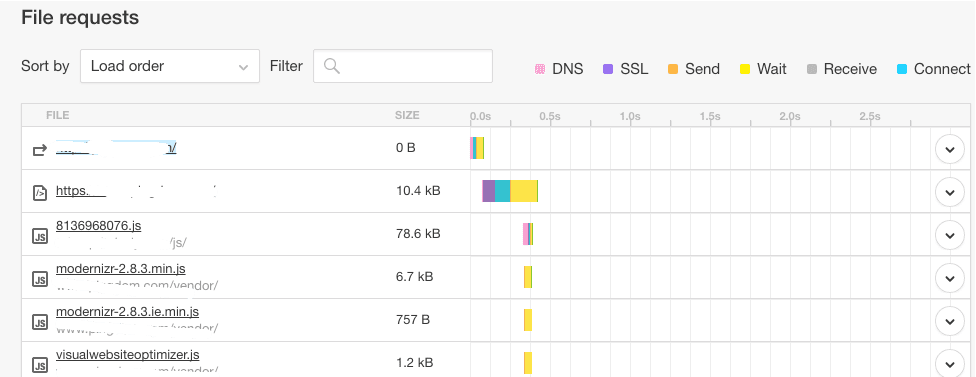
The Pingdom performance test is thorough and comprehensive. That said, it doesn’t give you a lot of insight into what the results mean. If you’re a marketer, you’ll likely need a web developer to interpret the results and implement the fixes.
GTMetrix Benchmark
GTMetrix is another website performance analysis website that provides a quick score of key performance factors and specific itemization of what’s right, what’s wrong, and what to do next. Like Pingdom, GTMextrix assigns a letter grade for a high-level performance evaluation.
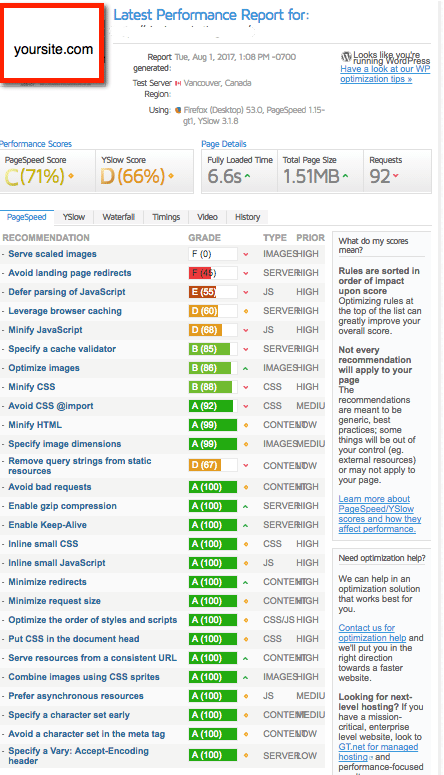
Clicking on an arrow in one of the rows will open a window a list of requested changes and an estimate of the impact the changes will have on site performance. This can be valuable in helping you prioritize next steps.
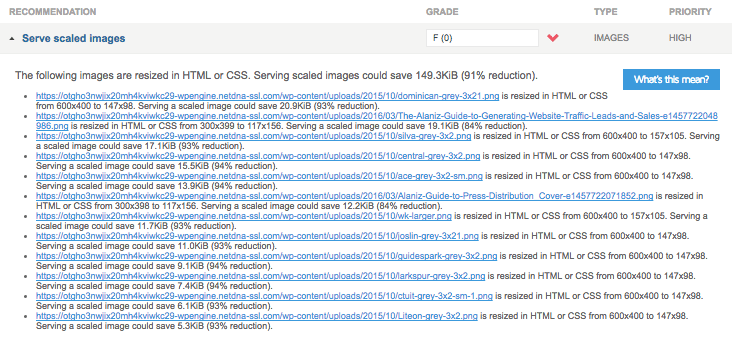
WPengine Benchmark
WPengine is different than Pingdom and GTMetrix in that it is not a performance optimization service per se. WPengine is a hosting service that only hosts WordPress site and provides a number of tools for developers and marketers to test and improve site performance.

WPengine’s cache report generates a cacheability score for each web page, along with key performance measurements such as render start, visitor complete and render complete – with and without caching.

WPengine’s “Visitor Experience Film Strip” measures and displays the loading speeds of every element on the site for insight into how the visitor would experience the page being loaded.
Because WPengine is a hosting platform, it offers additional resources for improving site performance that web optimization services don’t. For example, WPengine has its own Content Delivery Network (CDN) that distributes website to multiple global locations and delivers content from the location nearest a user to accelerate content delivery.
Google PageSpeed Insights
Google PageSpeed Insights provides a higher-level analysis of performance, rating a site as Poor, Needs Work, or Good. While it provides recommendations for improvement, the Google tool does not rank specific performance criteria or the impact that making suggestions might have.
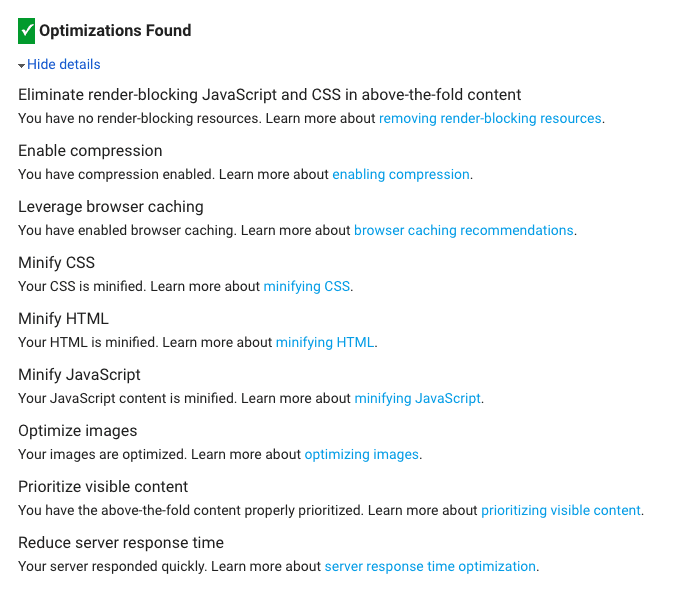
Google does provide users with lots of educational materials about what these performance factors mean and how to implement improvements in each area.
Website optimization is complex and multifaceted. Because site performance is increasingly important to search engines in determining what results to serve users, it critical to continually measure and optimize site performance. These tools can provide valuable insights into your current website status and help you identify and fix issues to improve performance.



